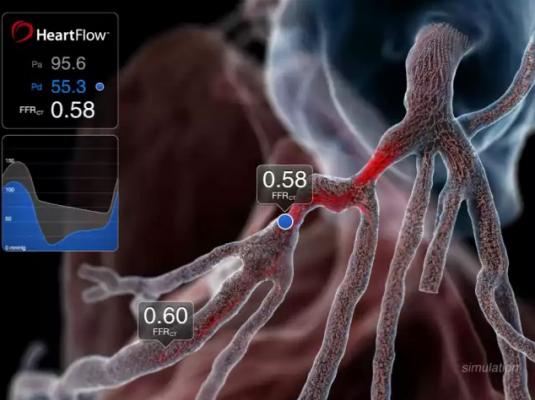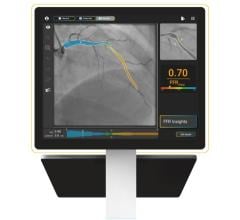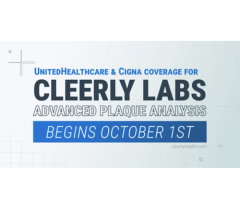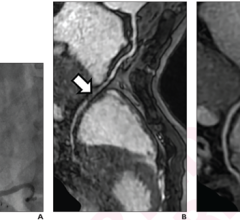
May 28, 2019 — New data demonstrated that use of the investigational HeartFlow Planner, a real-time, non-invasive interactive planning tool, led to a change in treatment strategy in 45 percent of patients with coronary artery disease (CAD) and reduced the need for invasive physiology. The data from the BOWIE (Benefits of Obtaining information for planning With noninvasive FFRCT prior to Invasive Evaluation) study were presented by Eric Van Belle, M.D., Ph.D., professor of cardiology, head of the Lille Heart & Lung Institute, and principal investigator for BOWIE, as a late-breaking trial at the EuroPCR Conference, May 21-24 in Paris, France.
BOWIE is a retrospective study that included 101 patients. Three interventional cardiologists independently reviewed the diagnostic angiogram for each patient and provided a treatment recommendation. The same three interventional cardiologists then reviewed each patients’ HeartFlow Analysis and used the HeartFlow Planner to virtually explore different treatment scenarios and provide a treatment recommendation. The study compared the differences in recommended treatment plans.
For example, in one case, the interventionalists initially recommended that a lesion be treated with a 38mm stent based on the diagnostic angiogram. After reviewing different treatment options with the HeartFlow Planner, the interventionalists changed the recommendation to treat the lesion with a 15mm stent, as the reduced stent length demonstrated a similar physiologic effect.
The HeartFlow Planner is an interactive tool that enables interventional cardiologists and heart teams to modify vessels virtually, and thereby determine the optimal treatment strategy prior to an invasive procedure. Every HeartFlow Analysis case is accompanied by enough data to allow HeartFlow Planner to modify vessel narrowings and arrive at a personalized ideal anatomical model, and to allow additional computations based on altered flow rates resulting from modified vessels. With HeartFlow Planner, an interventional cardiologist or heart team can explore the treatment area and view the modified vessel and resulting fractional flow reserve-computed tomography (FFRct) changes in real time. This tool allows non-invasive study of treatment scenarios to identify which intervention is optimal.
The HeartFlow Planner is currently not available for commercial use and is under review with the U.S. Food and Drug Administration (FDA).
For more information: www.heartflow.com


 October 24, 2025
October 24, 2025 









